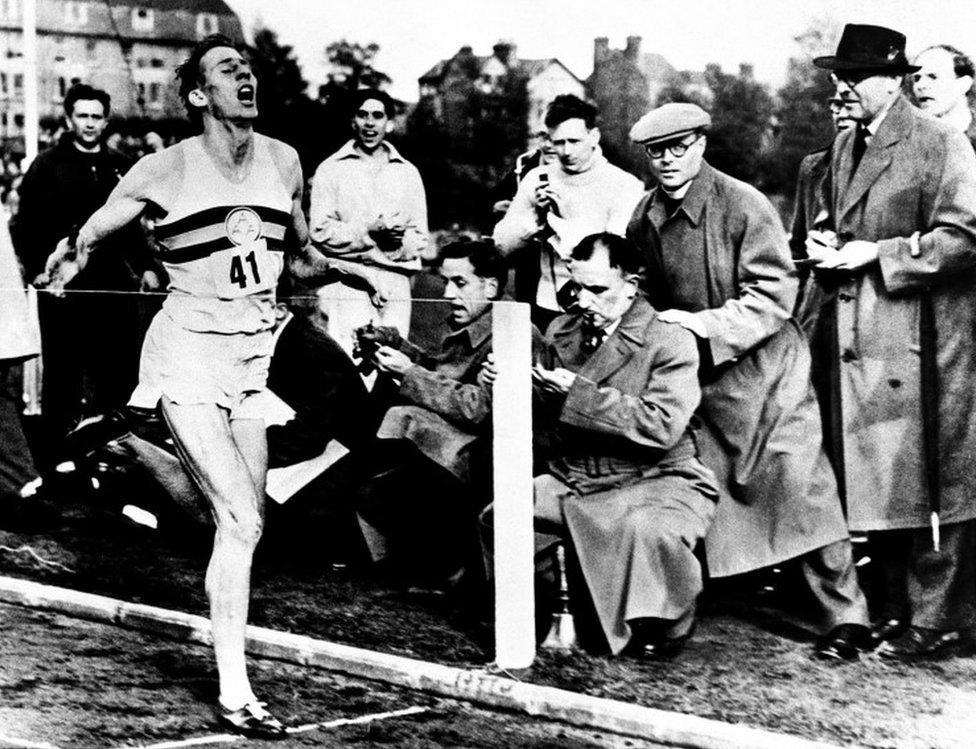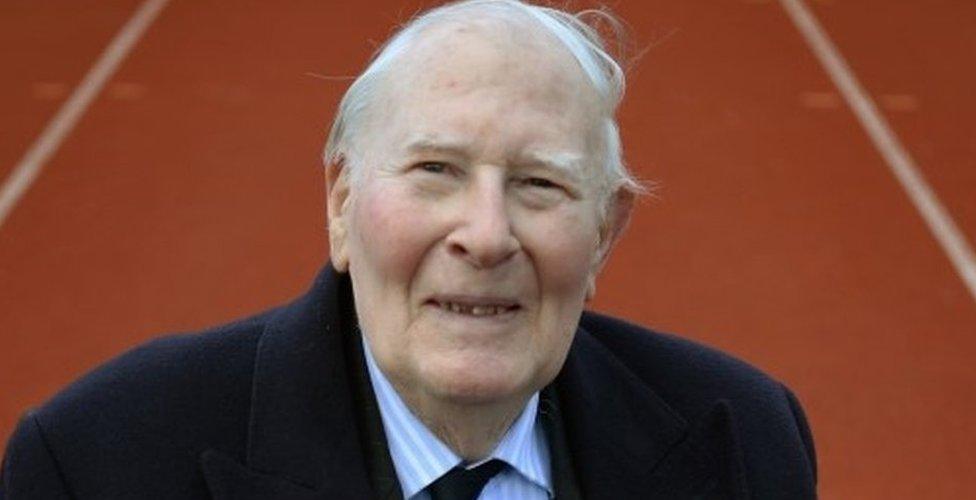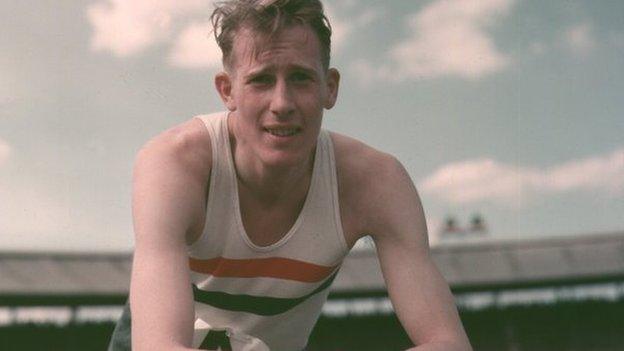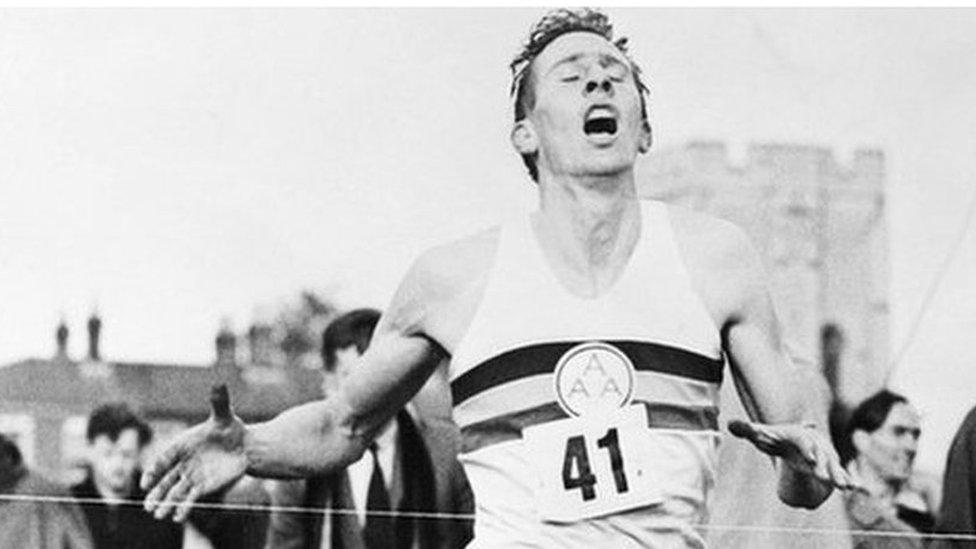Sir Roger Bannister to be commemorated with abbey memorial
- Published

As a medical student in Oxford, Sir Roger used his knowledge to devise his own training regime
Sir Roger Bannister, the first man to run a mile in under four minutes, is to be honoured with a memorial at Westminster Abbey.
The then-medical student ran the distance in three minutes and 59.4 seconds at the Iffley Road track at Oxford University on 6 May 1954.
Sir Roger became a distinguished neurologist and his memorial ledger stone will be dedicated in Scientists' Corner in the abbey on 28 September.
He died in March 2018, aged 88.
Sir Roger used his medical knowledge to devise his own training regime and investigate the mechanical aspects of running.
After conquering the sub four-minute mile he won a Commonwealth and a European Championship gold medal later that year.

Sir Roger's medical and athletic careers were "interwoven", his son said
But at the end of 1954 he retired from athletics to pursue his medical studies, specialising in the study and treatment of the the body's automatic functions, such as heartbeat, blood pressure and digestion.
Sir Roger's stone will be alongside the graves of Sir Isaac Newton, Charles Darwin and Professor Stephen Hawking.
The Dean of Westminster, The Very Reverend Dr David Hoyle, said Sir Roger "reached out for that which lay beyond".
He added: "As a sportsman, pushing himself towards a prize some considered beyond human reach, as a scientist ever eager for deeper understanding of neurology."
Sir Roger's son, Clive Bannister, said: "My father served as a physician, teacher and researcher - in this last role seeking to find the causes and treatments of illnesses in his field and extend general scientific understanding of the human mind and body.
"In sport, one ambition he fulfilled was to show people how much they could achieve if they rejected artificial barriers."
He said he hoped people would "draw inspiration" from the memorial by reflecting on how he made "full use of his gifts for the betterment of others".
The memorial will be unveiled in a small ceremony involving members of Sir Roger's family.

Follow BBC South on Facebook, external, Twitter, external, or Instagram, external. Send your story ideas to south.newsonline@bbc.co.uk, external.
Related topics
- Attribution
- Published4 March 2018

- Published4 March 2018
